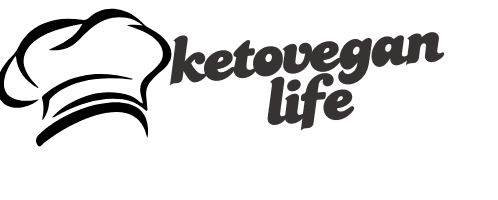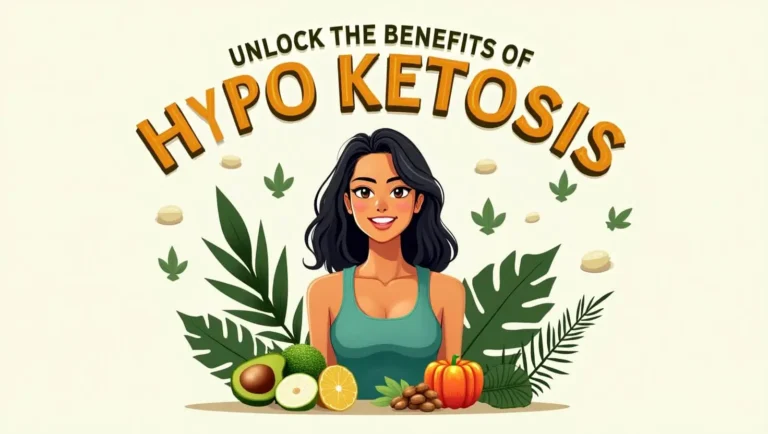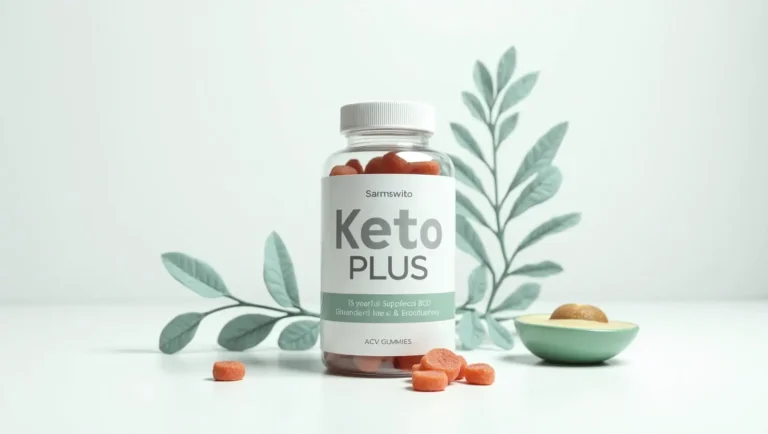Can You Eat Cottage Cheese on a Keto Diet?
Starting a ketogenic diet means you’re curious about what foods are okay. You need to plan carefully to stay in ketosis. Cottage cheese is a food that many wonder about. Can you eat it on a keto diet? The answer depends on understanding keto diets and cottage cheese’s nutrition.
On a keto diet, you should eat whole, nutrient-rich foods that help you stay in ketosis. Cottage cheese has a lot of protein and some fat, making it a good choice. But, let’s look closer before you start eating it.
Table of Contents
Key Takeaways
- You can eat cottage cheese on a keto diet, but it’s crucial to choose the right type and portion size.
- A ketogenic diet requires a specific balance of macronutrients to achieve and maintain ketosis.
- Cottage cheese is a good source of protein and fat, making it a potential keto-friendly food.
- Not all cottage cheese is created equal, and some types may be more suitable for a keto diet than others.
- Incorporating cottage cheese into your keto meal plan can help with satiety and weight management.
- It’s essential to consider the carbohydrate content of cottage cheese and factor it into your daily keto macros.
- With careful planning, cottage cheese can be a valuable addition to your ketogenic diet.
Understanding the Basics of a Ketogenic Diet
To get into a high ketosis diet, you need to know the basics. This diet is low in carbs and high in fat. It helps your body burn fat for energy, not carbs. Knowing the basics helps you make better diet choices, leading to successful weight loss.
Macro ratios are key in a ketogenic diet. The right mix of macronutrients is essential for ketosis. You’ll eat lots of fat, some protein, and very few carbs. The exact ratio depends on your needs and goals.
What Defines a Keto Diet
A keto diet is all about ketosis. This is when your body uses fat for energy, not carbs. By eating a high ketosis diet, you can reach this state and see weight loss benefits.
Importance of Macro Ratios
Macro ratios are crucial in a ketogenic diet. The right mix of fat, protein, and carbs is important. Aim for:
- 70-80% of daily calories from fat
- 15-20% of daily calories from protein
- 5-10% of daily calories from carbohydrates
Common Keto-Friendly Foods
Focus on whole, nutrient-rich foods on a ketogenic diet. Some good options include:
- Fatty fish
- Eggs
- Full-fat dairy products
- Meat and poultry
- Low-carb vegetables
Is Cottage Cheese Keto? Breaking Down the Facts
When you’re on a ketosis diet plan, it’s crucial to check the foods you eat. Cottage cheese seems like a good choice because it’s high in protein and low in carbs. But is it really keto-friendly? Let’s look at the facts.
A ketogenic diet needs the right mix of macronutrients. To get the ketosis diet benefits, you must keep a certain balance of fat, protein, and carbs. Cottage cheese, being a dairy product, has a lot of protein. This is good for those on a keto diet.
Here are some things to think about when considering cottage cheese for your ketosis diet plan:
- Protein content: Cottage cheese is packed with protein. This can help you feel full and keep your muscles strong.
- Carbohydrate content: Cottage cheese has some carbs, but not a lot. This makes it a possible keto-friendly choice.
- Fat content: Cottage cheese also has healthy fats. These are key for a ketosis diet plan.
Knowing what cottage cheese offers in terms of nutrition and its ketosis diet benefits helps you decide if it fits in your keto meal plan.
Nutritional Profile of Cottage Cheese
Cottage cheese is packed with essential vitamins and minerals. It’s great for a hyper ketosis meal plan because it’s low in carbs, high in protein, and has some fat. This makes it a valuable food for your diet.
Looking into hyper ketosis benefits? Cottage cheese is a top pick. It’s full of micronutrients that boost your health and wellbeing. Adding it to your diet can help control blood sugar, keep you full, and aid in weight management.
Carbohydrate Content
Cottage cheese has very few carbs, perfect for a hyper ketosis diet. A 1/2 cup serving has about 5-7 grams of carbs.
Protein and Fat Levels
Cottage cheese is a protein powerhouse, with 28-30 grams in a 1/2 cup. It also has 10-15 grams of fat. This mix of protein and fat is great for muscle growth and feeling full.
Micronutrients and Benefits
Cottage cheese is not just about macronutrients. It’s also rich in calcium, phosphorus, and potassium. These nutrients are good for your bones, blood pressure, and overall health. Adding cottage cheese to your diet can improve your nutrition and health.
| Nutrient | Amount per 1/2 cup serving |
|---|---|
| Carbohydrates | 5-7 grams |
| Protein | 28-30 grams |
| Fat | 10-15 grams |
| Calcium | 10-15% of the Daily Value (DV) |
| Phosphorus | 20-25% of the DV |
| Potassium | 10-15% of the DV |
Different Types of Cottage Cheese and Their Keto Compatibility
Adding cottage cheese to your keto diet requires knowing the different types and their fit with a ketogenic diet. You can pick from full-fat, low-fat, or non-fat cottage cheese. Each has its own nutritional values. It’s key to weigh the good and bad of each, looking at carbs, protein, and fat.
A best hyper ketosis diet needs careful planning. Knowing the cottage cheese types helps you tailor your meals. For example, full-fat cottage cheese is great for high protein and low carbs. But, if you’re watching fat, low-fat or non-fat might be better.

Here are some key considerations when selecting cottage cheese for your ketogenic diet:
- Full-fat cottage cheese: high in protein and fat, low in carbohydrates
- Low-fat cottage cheese: lower in fat, higher in carbohydrates
- Non-fat cottage cheese: very low in fat, higher in carbohydrates
Choosing the right cottage cheese and adding it to your meals can help you reach your diet goals. This way, you can keep your keto diet healthy and balanced.
Best Ways to Include Cottage Cheese in Your Keto Meal Plan
To keep your diet in ketosis, it’s key to eat keto-friendly foods. Cottage cheese is a great choice, packed with protein and healthy fats. But, remember to eat it in small amounts. Too much can slow down your weight loss.
Here are some tips to help you include cottage cheese in your keto meal plan:
- Start your day with a cottage cheese breakfast, paired with keto-friendly fruits like berries or citrus.
- Use cottage cheese as a snack, mixed with chopped nuts or seeds for added crunch.
- Incorporate cottage cheese into your salads, adding a creamy texture and boost of protein.
For the best results, eat cottage cheese in the morning or before working out. It gives you energy and helps build muscle. Try mixing it with lemon juice and herbs, then top it with smoked salmon or avocado for a tasty keto dish.
Adding cottage cheese to your keto diet can make it more balanced and enjoyable. Always pick full-fat cottage cheese and watch your portions. This keeps you within your keto macros.
| Keto Meal Idea | Ingredients | Macro Breakdown |
|---|---|---|
| Cottage Cheese Breakfast | Cottage cheese, berries, chopped nuts | 350 calories, 25g protein, 25g fat, 5g carbs |
| Cottage Cheese Salad | Cottage cheese, mixed greens, avocado, lemon juice | 400 calories, 30g protein, 30g fat, 5g carbs |
Potential Benefits of Cottage Cheese for Ketosis
Choosing the right foods is key when you’re on a ketosis diet. Cottage cheese can be a great choice for your keto meal plan. It offers several benefits, like better blood sugar control and increased fullness, which can help with weight management.
Impact on Blood Sugar
Cottage cheese has low carbs, making it perfect for ketosis diets. Its protein and fat help keep blood sugar stable. This is good for people with diabetes or those who have trouble controlling their blood sugar.
Satiety and Weight Management
The high protein in cottage cheese makes you feel full longer. This can help you lose weight and manage your weight better. Adding cottage cheese to your diet can improve blood sugar control and make you feel fuller, supporting your health goals.
Cottage cheese is a nutritious addition to a ketosis diet. It offers benefits that support your health and wellness. Understanding these benefits can help you make better diet choices and improve your life quality.
Common Concerns About Dairy on Keto
Following a hyper ketosis diet might make you think twice about dairy. You might worry about lactose intolerance causing stomach problems. But, many dairy items like cottage cheese have little lactose, making them okay for those with mild intolerance.
Another worry is how dairy affects your keto diet. Studies show that full-fat, low-carb dairy can be part of a keto diet. They even suggest it can help with weight loss and better health.
Here are some common concerns about dairy on keto and how to address them:
- Lactose intolerance: Choose low-lactose dairy products or consider lactose-free alternatives.
- Dairy allergies: If you have a dairy allergy, consider non-dairy alternatives or consult with a healthcare professional.
- Impact on ketosis: Select full-fat, low-carbohydrate dairy products to support hyper ketosis benefits.
Remember, everyone’s body is different. What works for one might not work for another. If dairy on a keto diet worries you, talk to a healthcare professional or registered dietitian. They can help figure out what’s best for you.
In conclusion, dairy can be part of a hyper ketosis diet if you pick the right ones. Knowing the common concerns and how to handle them lets you enjoy keto benefits while including dairy.
Alternatives to Cottage Cheese for Keto Dieters
Exploring the best hyper ketosis diet options might lead you to look beyond cottage cheese. There are many alternatives to try. A ketogenic diet is all about finding the right balance of nutrients. With a bit of creativity, you can find new favorites.
For high-protein dairy, consider Greek yogurt or ricotta cheese. They offer similar benefits to cottage cheese but with different tastes and textures. For non-dairy options, vegan cheese or tofu are great choices for your keto meal plan.
Other High-Protein Dairy Options
- Quark cheese: a German cheese with a high protein content
- Kefir: a fermented milk product with a tangy taste
- Whey protein: a popular supplement for keto dieters
Non-Dairy Substitutes
Plant-based options are also available. Some popular choices include:
- Soy cheese: a versatile and meltable option
- Nutritional yeast: a nutty, cheese-like flavor
- Coconut yogurt: a dairy-free alternative to traditional yogurt

Success on a ketogenic diet comes from finding the right balance of nutrients. With a bit of experimentation, you can find the perfect alternatives to cottage cheese. Enjoy a varied and delicious keto diet.
| Alternative | Protein Content | Keto-Friendliness |
|---|---|---|
| Greek Yogurt | 20g per 6oz serving | High |
| Vegan Cheese | 10g per 1oz serving | Moderate |
| Quark Cheese | 18g per 6oz serving | High |
Conclusion: Making Cottage Cheese Work for Your Keto Lifestyle
Incorporating cottage cheese into your ketogenic diet can be a smart move. It’s a great source of protein and can help with hyper ketosis and weight management. By knowing the nutritional profile and carb content of different cottage cheese varieties, you can decide if it’s right for your keto lifestyle.
It’s important to watch your portion sizes and add cottage cheese wisely to your keto meal plan. Try out different recipes to make this versatile dairy product fit your dietary needs and preferences. With a bit of creativity, you can enjoy cottage cheese’s benefits while staying in ketosis.
FAQ
What is a ketogenic diet?
A ketogenic diet is a diet low in carbs and high in fats. It helps your body burn fat for energy instead of carbs. Knowing the right food ratios and what foods are keto-friendly is key.
Is cottage cheese keto-friendly?
Cottage cheese can be good for a keto diet. It’s rich in protein and low in carbs. But, you should check its nutritional facts to see if it fits your keto plan.
What is the nutritional profile of cottage cheese?
Cottage cheese is packed with vitamins and minerals. It’s low in carbs, high in protein, and has some fat. Knowing this can help you decide if it’s good for your keto diet.
What are the different types of cottage cheese and their keto compatibility?
There are many types of cottage cheese, each with its own nutrition. Looking at these can help you choose the right one for your keto diet.
How can I incorporate cottage cheese into my keto meal plan?
Adding cottage cheese to your keto diet is easy and tasty. Just follow some guidelines on portion sizes and meal times. You can also find lots of recipes online.
What are the potential benefits of cottage cheese for ketosis?
Cottage cheese might help with blood sugar and feeling full on a keto diet. Knowing these benefits can help you decide if it’s right for you.
What are the common concerns about dairy on a keto diet?
Some people worry about dairy, like cottage cheese, on a keto diet. Looking into the research can help you decide if dairy is okay for you.
What are the alternatives to cottage cheese for keto dieters?
While cottage cheese is great for keto, there are other protein-rich options and non-dairy choices. Exploring these can help you find what works best for you.



